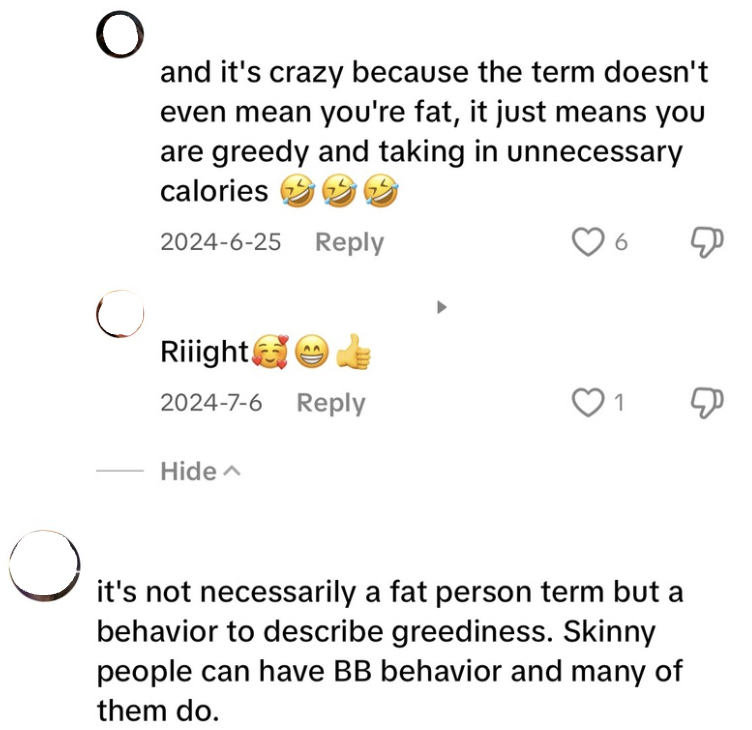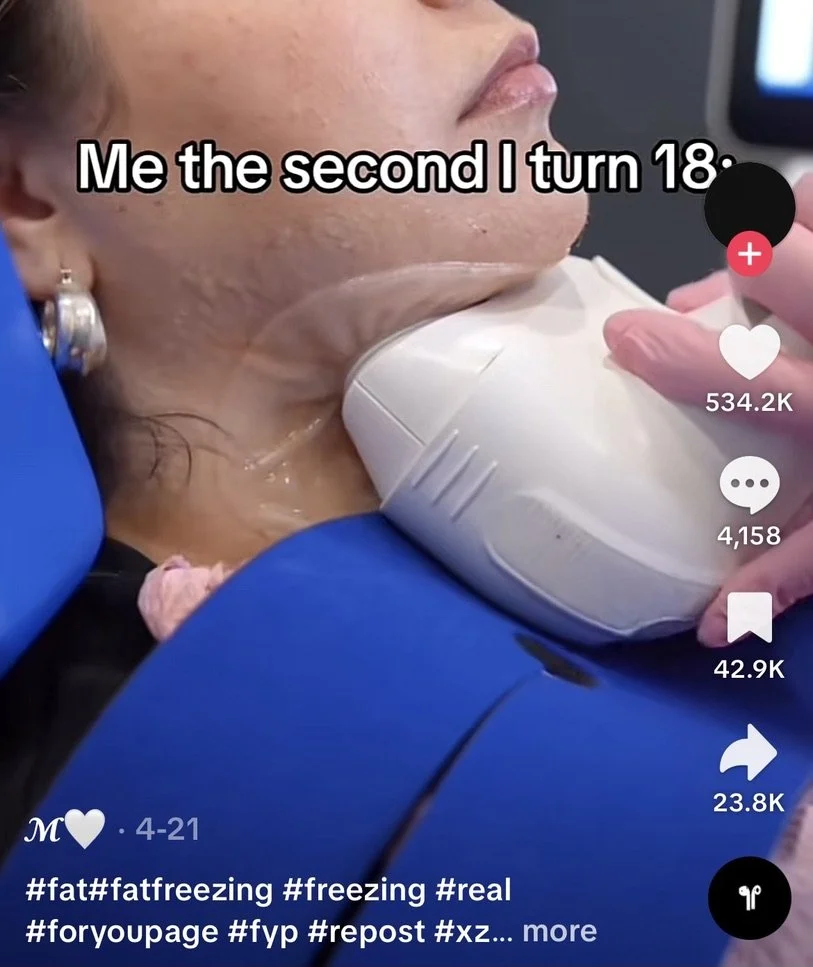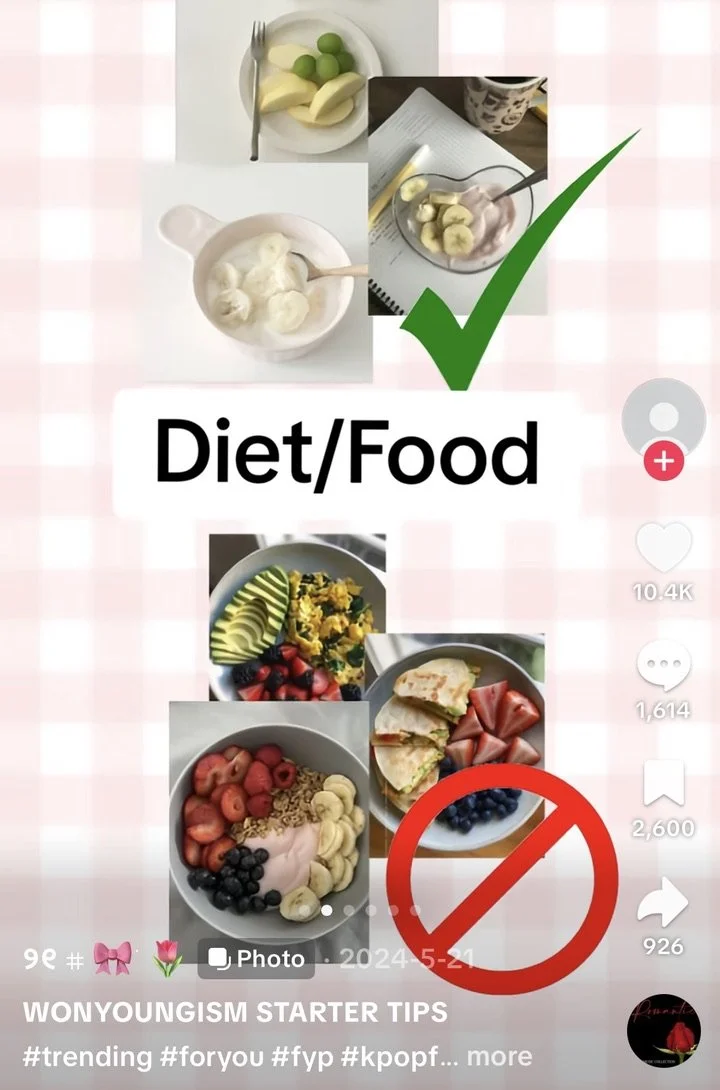Fatphobia is back for Gen Z. Are we regressing modern society?
Many are fearing that our society is once again, done for. The cyclical nature of backward trends is evident as ever through social media and public systems. A notable display of our decline is the recent surge of trends on popular platforms like TikTok and Instagram (Reels) that incite fatphobia, the unreasonable dislike or unfair treatment of fat people. It is evocative of fatphobia in the early 2000s, only that it’s less majorly perpetuated by popular culture and media and takes a slightly different form.
Why shouldn’t we allow fatphobia to be tolerated yet again? How do prejudices like fatphobia affect all of us, regardless of our body type?
The latest terms that are actually fatphobic
Several buzzwords are used that can make people feel poorly about themselves or their choices surrounding food. A common one is “Big Back”, which describes someone who ‘eats like a big person’ or greedily takes ‘unnecessary’ food. Double-standard jokes are often made about people on or who ‘should’ be on ozempic, an anti-diabetic medication increasingly used for weight loss. Such judgements can erode bodily autonomy and the comfort in doing what feels right for a distinct body.
(See caption)
Discussion trying to justify the use of “Big Back”
Other phrases like “body tea” (a good-looking body) or the need to point out someone’s “snatched waist” are usually meant to express compliments or admiration, but continually reinforce certain beauty standards as a result of the selectivity it is rewarded upon.
Pro-eating disorder propaganda is even deliberately spread online - old Tumblr-esque trends such as ‘Heroin chic’ have resurged through trendy hashtags and cult-like communities like ‘Wonyoungism’ and ‘SkinnyTok’ where body checking, the glorification of thinness, and disordered eating are thinly veiled as aesthetics or lifestyles. The notion that you need to lose weight to “glow up” and look better is strongly reinforced by popular creators. Considering how it is almost guaranteed that those struggling with disordered eating will encounter diet-oriented videos on their algorithm, and many of these users are very young, the impact such propaganda can have on self-perception should ring alarm bells.
These terms and trends extend beyond social media and permeate real-life communities, commonly used even by those with smaller body types and passed off as casual, oftentimes disregarding the impact they could have on anyone else. Real things I’ve had acquaintances say include, “Your (fitted) top would look better if it was cinched more at the waist” and “Is it kinda big of me if I order two portions?” amongst others. Seemingly joking and “unserious” phrases can be a cause for body image issues and harmful eating disorders that might last years of one's life and have further implications on their mental and physical health.
Running the risk of sounding too sensitive or jealous of other body types, people rarely even realise how divisive calling others pretty or ugly can be, whether saying it to their face or around other people.
What’s the greater issue with fatphobia?
Aside from the apparent effects fatphobia could have on any individual, the general hatred it stirs can eventually come down on society as well.
Characterising a regressive society
Psychiatrist Murray Bowen introduced a regressive society as a society with escalating conflicts, a reduced capacity for rational thinking, that reverts back to less developed states of self-expression and relating to others. In this case, we can consider eras where negative interpersonal communication like body shaming was rampant, like the 90s and 2000s.
Body positivity was a thing once, by the way. What miraculously de-normalised it?
I believe societal regression results from the endangerment that systematic industries - entertainment, healthcare, beauty and fashion, or in the workplace - pose to human sovereignty, the right individuals have over their own dignity and decision-making. In this new age of ubiquitous body dysmorphia, it’s easy to forget that huge, profitable corporations conjured these made-up insecurities in the first place, along with shiny products that “solve” them. By judging every physical aspect and personal decision over one’s body, we continue to feed into the handover of our bodily autonomy to external entities. Over time, this can undermine efforts to battle unequal treatment based on appearances.
Not to mention, fatphobia is inextricably linked to other prejudices, like deeply-rooted racism and misogyny. Engaging in fatphobia can intensify the currency of all discrimination.
Widespread hateful trends can remind us that shame is a corrosive force that destroys anything it touches. Weaponising internal shame into external blame demotes us to low states of awareness and empathy. Consistently correcting the glamorisation and fetishisation of taking up less space can help us avoid this.
In conclusion, stop
It's not a crime to have been affected by your surroundings and upbringing. Of course, certain values and expectations have been embedded into us since we could remember. What can be blamed, however, is choosing to fuel them.
Cultural regression is built around projecting your envy, guilt, and shame. Your comments, even if not directed to higher-weight individuals, can have effects you may never see.
To combat negative perceptions of bigger bodies, try to bring awareness to these perceptions and eradicate the idea that the perfect body exists. Learn about body neutrality or body reflexivity. Remember that beauty standards fuel the patriarchy and objectification of women’s bodies for monetary gain.
Societal institutions such as medical and educational facilities already make it hard to exist as an overweight person without hateful or snide comments on top of it. Practising true empathy and respect displays emotional intelligence and can go a long way for the mental health of yourself and others.
So please, think twice before you say phrases like “Big Back” and educate others when they do. The next time you feel like making a comment about yours or someone else’s weight, “face card”, or whatever looks-centric propaganda trends next, remember that there are greater things in life that aren’t sending us backwards.
Here are some ways to compliment someone without talking about their weight.
“We are made of star-stuff.”
Author’s note: AI was not used to write this article
Sources:
Jul 7 2025




